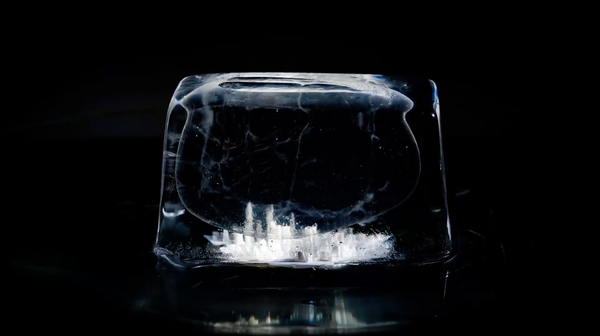本文發表於《大眾科學》的前部落格網路,反映了作者的觀點,不一定代表《大眾科學》的觀點
2001年9月11日,當您第一次聽到紐約市的世界貿易中心大樓被飛機撞擊並倒塌的訊息時,您在哪裡?我們幾乎所有人都清楚地記得我們在哪裡、如何聽到這個訊息以及我們第一次看到的影像。然而,研究表明,我們對過去事件的回憶通常只有大約一半是正確的——即使我們確信自己的記憶是確定的。
紐約大學心理學和神經科學教授莉茲·菲爾普斯探討了這種脫節現象。菲爾普斯專注於情緒如何改變學習和記憶。她在由她的紐約大學同事、情緒大腦專家約瑟夫·勒杜創作的引人入勝的影片《控制我們的恐懼》中解釋了為什麼我們的記憶如此容易改變。該影片是他與導演亞歷克西斯·甘比斯共同製作的名為《我心中的眼睛》系列的第四部。(第一集以內德·布洛克為主角,討論身心問題;第二個影片是關於邁克爾·加扎尼加的自由意志;第三個影片是關於諾貝爾獎得主埃裡克·坎德爾關於大腦中的神經元如何學習並首先創造記憶。)勒杜和甘比斯給了《大眾科學》機會在我們的網站上首先發布這些影片。
關於支援科學新聞
如果您喜歡這篇文章,請考慮透過以下方式支援我們屢獲殊榮的新聞報道 訂閱。透過購買訂閱,您正在幫助確保有關當今塑造我們世界的發現和想法的具有影響力的故事的未來。
在影片中,菲爾普斯解釋說,我們的記憶之所以會改變,是因為我們每次重溫它們時,它們都會變得脆弱。當我們第一次儲存記憶時,大腦需要一段時間才能牢固地儲存資訊——這個過程稱為鞏固。每次我們隨後回憶起該記憶時,它都必須經歷一個新的儲存過程——另一個略微延遲的鞏固過程。在那段時間內,新資訊可能會干擾舊資訊並改變記憶。菲爾普斯說,這就像玩學校裡的傳話遊戲,一個學生給第二個學生講一個短故事,然後那個人把它複述給第三個學生,第三個學生又把它複述給第四個學生,以此類推。到鏈條的末端,故事通常與它開始時的樣子大相徑庭。
記憶的這種變化已透過在齧齒動物中使用藥物進行的實驗以及在人們身上進行的練習得到了證實。菲爾普斯在影片中描述了這項工作。她還指出,如何使用再鞏固來幫助人們控制涉及恐懼或焦慮的不良記憶。令人欣慰的訊息是,我們可能有一天能夠化解這種痛苦的記憶。
為了好玩,菲爾普斯的採訪附帶了勒杜和他的樂隊杏仁核樂隊錄製的一首相關歌曲的片段,名為《我只想忘記如何記住你》。請欣賞。
此影片中的影像由Labocine提供。
